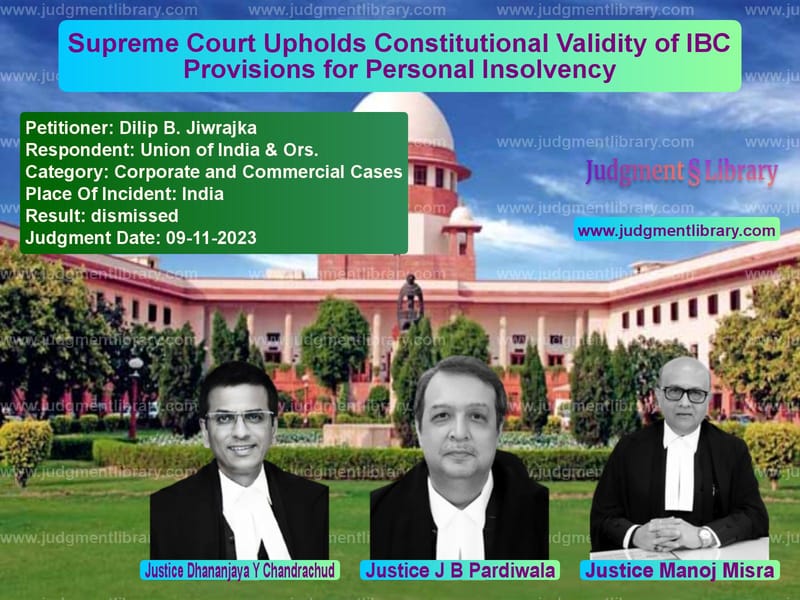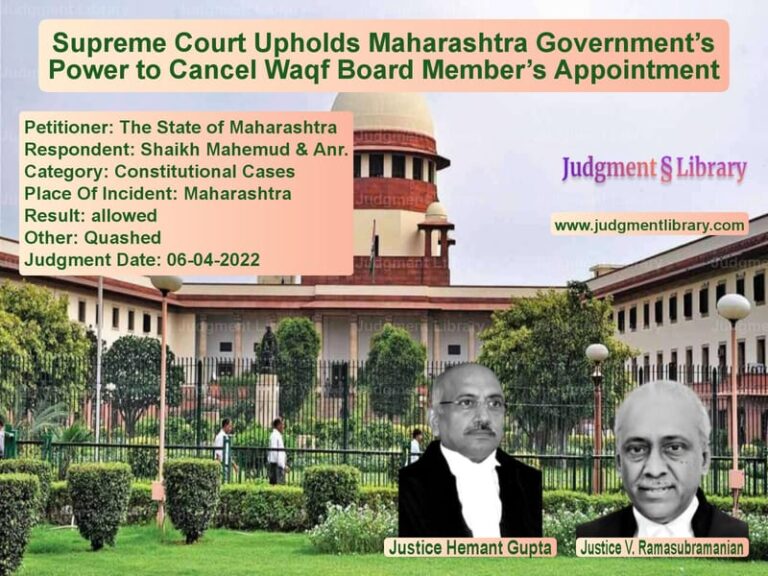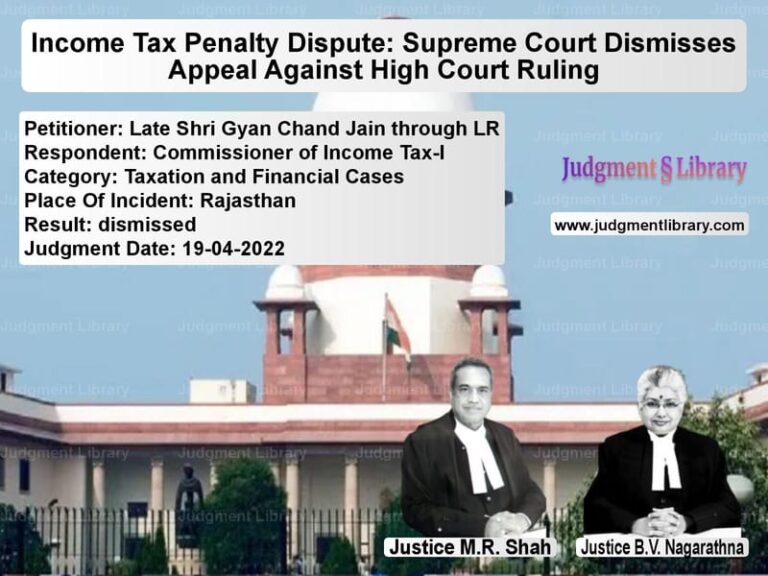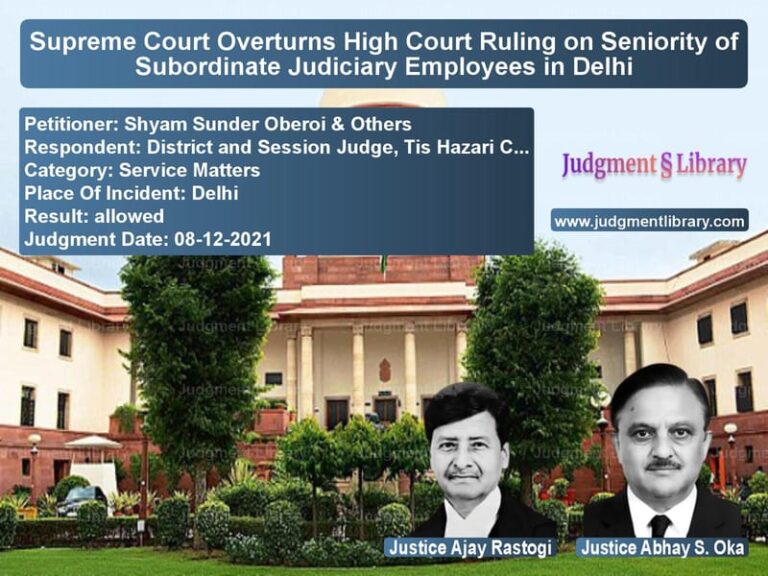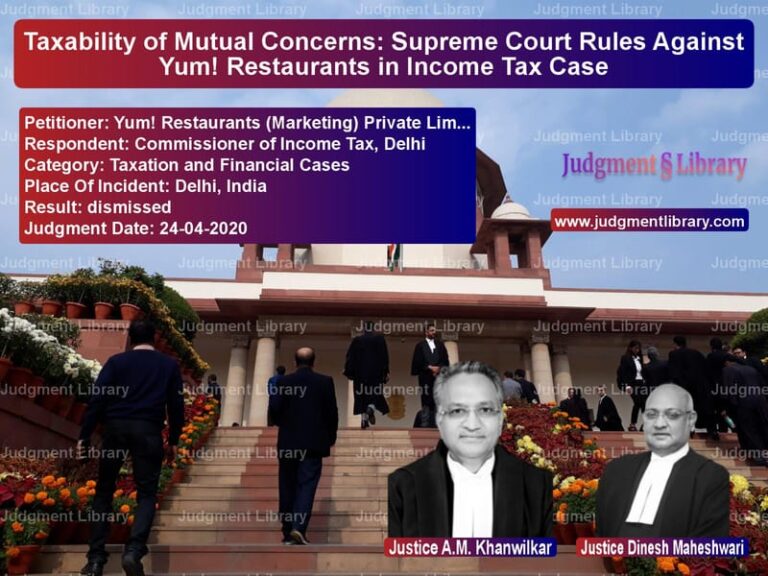Supreme Court Upholds Constitutional Validity of IBC Provisions for Personal Insolvency
The Supreme Court of India has recently ruled on a significant case concerning the constitutional validity of Sections 95 to 100 of the Insolvency and Bankruptcy Code, 2016 (IBC). The judgment in Dilip B. Jiwrajka v. Union of India & Ors. and other connected petitions challenged the provisions governing the insolvency resolution process for individuals, particularly personal guarantors to corporate debtors. The case was heard by a bench led by Chief Justice Dr. Dhananjaya Y. Chandrachud, and Justices J.B. Pardiwala and Manoj Misra.
Background of the Case
The petitioners, including Dilip B. Jiwrajka, challenged the constitutional validity of Sections 95 to 100 of the IBC, which deal with the insolvency resolution process for individuals and personal guarantors to corporate debtors. The principal grounds of challenge were:
- The provisions allow for an interim moratorium and appointment of a resolution professional without prior judicial determination.
- The resolution professional is empowered to seek information from the debtor and third parties without affording the debtor a prior hearing.
- The absence of procedural safeguards violates the principles of natural justice under Article 14 and the right to privacy under Article 21 of the Constitution.
Scheme of the IBC and Contested Provisions
The IBC is a comprehensive law enacted to consolidate insolvency resolution mechanisms across corporate entities, firms, and individuals. The relevant provisions under challenge are as follows:
- Section 95: Enables a creditor to apply for the initiation of an insolvency resolution process against a personal guarantor.
- Section 96: Imposes an automatic interim moratorium upon filing of an application under Section 94 (by debtor) or Section 95 (by creditor).
- Section 97: Provides for the appointment of a resolution professional to examine the insolvency application.
- Section 99: Requires the resolution professional to examine the application and submit a report to the adjudicating authority recommending its acceptance or rejection.
- Section 100: Grants the adjudicating authority the power to admit or reject the application.
Petitioners’ Arguments
The petitioners contended that the process initiated under Sections 95 to 100 of the IBC is arbitrary and violative of constitutional principles. The key arguments were:
- The automatic interim moratorium under Section 96 takes effect even before judicial determination of debt.
- The resolution professional has broad investigative powers without judicial oversight.
- Natural justice is violated as the debtor is not provided a hearing before the resolution professional makes a recommendation.
- The right to privacy under Article 21 is compromised due to unrestricted access to financial information by the resolution professional.
- The provisions operate retroactively by affecting past loan agreements and guarantees.
Respondents’ Arguments
The Union of India and financial creditors defended the validity of the provisions, arguing that:
- The IBC is a time-bound process designed for speedy resolution of insolvency cases.
- The interim moratorium is intended to protect the debtor rather than penalize them.
- The resolution professional acts as a facilitator, not an adjudicator.
- The adjudicating authority provides a final opportunity for a fair hearing under Section 100.
- The provisions serve a legitimate legislative purpose and are not arbitrary.
Supreme Court’s Analysis
1. Functional Comparison of Part II and Part III of IBC
The Court distinguished the insolvency resolution process for corporate entities (Part II) from that of individuals and personal guarantors (Part III). It noted that:
- Under Part II, the adjudicating authority is involved at the initial stage.
- Under Part III, the resolution professional conducts a preliminary inquiry before the adjudicating authority steps in.
The Court emphasized that these procedural distinctions serve legitimate legislative objectives and are based on an “intelligible differentia.”
2. Role of the Resolution Professional
The Court clarified that:
- The resolution professional is a facilitator, not an adjudicator.
- Their role is limited to collating facts and submitting a report.
- Their recommendations are not binding on the adjudicating authority.
3. Applicability of Natural Justice
The Court rejected the argument that the resolution professional’s role violates principles of natural justice. It held that:
- Debtors are given an opportunity to submit information and respond to queries.
- Final adjudication takes place before the adjudicating authority under Section 100.
- Audi alteram partem (right to be heard) is satisfied at the adjudication stage.
4. Privacy Concerns
The Court ruled that:
- The resolution professional’s power to collect information is subject to confidentiality obligations.
- Seeking financial details from a debtor does not violate the right to privacy when balanced with the larger economic interests of creditors.
5. Retrospective Application
The Court held that:
- The IBC does not operate retroactively as it governs current and future insolvency proceedings, not past transactions.
Supreme Court’s Verdict
The Court upheld the constitutional validity of Sections 95 to 100 of the IBC, concluding that:
- No judicial adjudication is required before appointing a resolution professional.
- The resolution professional’s role is purely recommendatory.
- The adjudicating authority ensures procedural fairness.
- The interim moratorium serves a protective function.
- The provisions do not violate Articles 14 and 21 of the Constitution.
The Court dismissed all petitions, affirming the legislative intent behind the IBC’s insolvency framework.
Petitioner Name: Dilip B. Jiwrajka.Respondent Name: Union of India & Ors..Judgment By: Justice Dhananjaya Y Chandrachud, Justice J B Pardiwala, Justice Manoj Misra.Place Of Incident: India.Judgment Date: 09-11-2023.
Don’t miss out on the full details! Download the complete judgment in PDF format below and gain valuable insights instantly!
Download Judgment: dilip-b.-jiwrajka-vs-union-of-india-&-ors-supreme-court-of-india-judgment-dated-09-11-2023.pdf
Directly Download Judgment: Directly download this Judgment
See all petitions in Bankruptcy and Insolvency
See all petitions in Corporate Compliance
See all petitions in Company Law
See all petitions in Shareholder Disputes
See all petitions in unfair trade practices
See all petitions in Judgment by Dhananjaya Y Chandrachud
See all petitions in Judgment by J.B. Pardiwala
See all petitions in Judgment by Manoj Misra
See all petitions in dismissed
See all petitions in supreme court of India judgments November 2023
See all petitions in 2023 judgments
See all posts in Corporate and Commercial Cases Category
See all allowed petitions in Corporate and Commercial Cases Category
See all Dismissed petitions in Corporate and Commercial Cases Category
See all partially allowed petitions in Corporate and Commercial Cases Category

